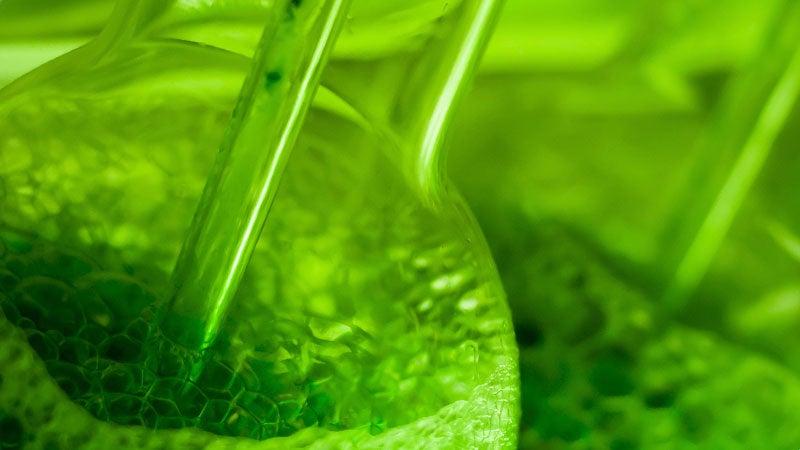Scientists have , and subsequently a variety of bio-fuels, in less than an hour, fueling widespread speculation that we might see the end of fears over “peak oil.”
The process, developed by engineers at the Department of Energy’s Pacific Northwest National Laboratory (PNNL), pumps a slurry of wet algae into a chemical reactor that facilitates the transformation in a matter of minutes, producing a crude oil that can be made into “aviation fuel, gasoline, or diesel fuel.” The process leaves behind water and a phosphorus-laden byproduct that can be recycled and made to grow more algae.
In addition to being highly efficient, PNNL believes that its process will be cheaper than other algae-to-biofuels processes. “Cost is the big roadblock for algae-based fuel,” . “We believe that the process we’ve created will help make algae biofuels much more economical.” Elliott explained that the team has figured out a way to use wet algae instead of processed (at great cost) dry algae.
They also dispensed with the use of chemicals and solvents to separate the algae and its energy-rich oils, using a high heat and pressure process instead. “It’s a bit like using a pressure cooker, only the pressures and temperatures we use are much higher,” Elliott says. “In a sense, we are duplicating the process in the Earth that converted algae into oil over the course of millions of years. We’re just doing it much, much faster.”
Genifuel Corp., a Utah biofuels company, has already licensed the technology and is attempting to reproduce it on an industrial scale.


